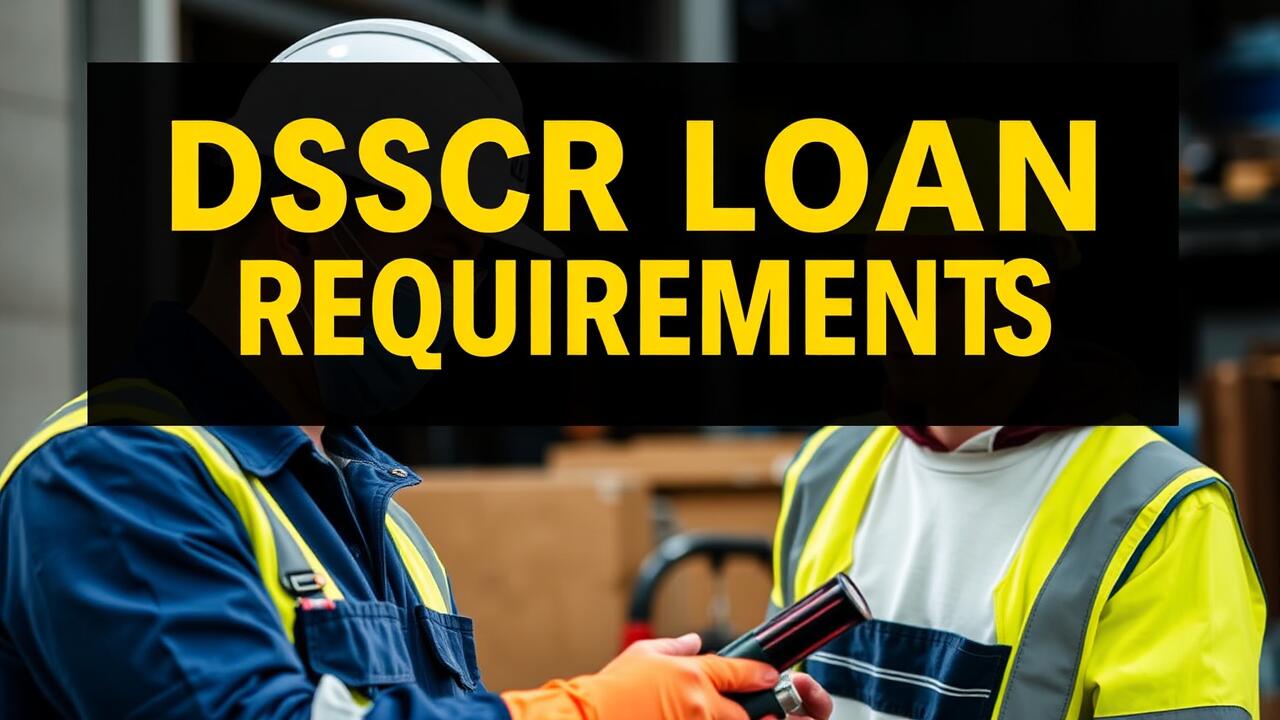
Table Of Contents
Property Requirements
When considering a DSCR loan, understanding property requirements is crucial. Properties must generally be investment-oriented, such as single-family rental homes, multi-family properties, and condos. Owner-occupied residences typically do not meet the criteria. Investors focusing on income-generating properties have a wider range of options within the purview of DSCR Loan Requirements. Each property type may come with specific criteria regarding condition, location, and zoning to ensure it qualifies under lending guidelines.
The condition of the property plays an essential role in the approval process for a DSCR loan. Lenders often require properties to be in habitable condition, as they aim to mitigate any risks associated with potential foreclosures. This focus on quality ensures that the asset will generate sufficient rental income. Applicants should also be aware that certain locations may feel the effects of local market conditions, which can further influence eligibility under the DSCR Loan Requirements.
Types of Properties Eligible for Financing
Investors looking to secure a DSCR loan can benefit from a variety of property types that are generally eligible for financing. Residential properties, such as single-family homes, duplexes, and multi-family units often qualify. Additionally, certain commercial properties may also meet the criteria depending on their income-generating potential. These options allow borrowers to strategically diversify their investments while adhering to DSCR Loan Requirements.
Properties intended for rental purposes usually align with DSCR Loan Requirements, as the primary focus is on the income generated from these assets. Short-term rental listings such as those on platforms like Airbnb may also be considered, provided they can demonstrate consistent revenue. It's essential for potential borrowers to ensure that their property matches the lender's specific eligibility criteria before applying for a loan.
Down Payment Expectations
When considering a DSCR loan, it's essential to understand the down payment expectations, which can vary significantly based on several factors. Typically, lenders look for down payments in the range of 15% to 25% of the property's purchase price. However, some lenders might offer more flexibility for investors with strong financial histories or favorable credit scores. Making a larger down payment can often improve loan terms, including interest rates and overall borrowing costs.
The DSCR Loan Requirements outline that the down payment serves not just as a financial commitment but also as a risk mitigation tool for lenders. A higher down payment generally indicates a lower loan-to-value ratio, which can be beneficial for both parties. Investors should be prepared to demonstrate the source of their down payment, as this can further substantiate their financial stability and readiness to invest in real estate.
Typical Down Payment Percentages
Down payment percentages for DSCR loans can vary based on several factors, including the lender and the specifics of the property. Generally, borrowers can expect to put down anywhere from 15% to 25% of the property’s purchase price. Higher down payments may strengthen the application and could lead to more favorable loan terms. Understanding these ratios is crucial for anyone considering this type of financing.
Meeting DSCR loan requirements often means coming prepared with sufficient funds for the down payment. Potential borrowers should assess their financial situation to ensure they can comfortably meet these expectations. By doing so, they not only enhance their chances of approval but also position themselves well within the investment landscape.
Documentation Needed for Application
When applying for a DSCR loan, applicants need to prepare several essential documents to ensure a smooth process. Lenders typically require proof of income to demonstrate the borrower's financial stability. This may include recent pay stubs, tax returns, and bank statements. Additionally, applicants should gather documentation related to the property, such as a purchase agreement or rental agreements, to establish the potential income-generating capacity of the asset.
The DSCR loan requirements also call for a credit report to assess the borrower's creditworthiness. A strong credit score can improve the chances of securing favorable loan terms. Furthermore, applicants may need to provide documentation of any other existing debts, as this will help determine the overall debt-to-income ratio essential for the loan approval process. Collecting all necessary documentation in advance will streamline the application and facilitate timely processing.
Essential Documents for a Smooth Process
When applying for a DSCR loan, having the proper documentation ready can greatly streamline the process. Lenders typically require proof of income, which can include recent bank statements, tax returns, and any supplementary revenue stream documentation. This information helps demonstrate your ability to meet the Debt Service Coverage Ratio, a critical aspect of the DSCR Loan Requirements. Additionally, applicants should prepare to provide a credit report and other relevant financial information that showcases their creditworthiness.
Property information is also crucial in this documentation phase. Buyers must gather details about the subject property, including the purchase agreement and any existing rental agreements if the property is an investment. Any documentation that verifies the property's cash flow, such as leases or rent roll statements, can further aid in establishing eligibility. Ensuring that all paperwork is organized and complete will facilitate a smoother review process and help meet the DSCR Loan Requirements effectively.
FAQS
What is a DSCR loan?
A DSCR loan, or Debt Service Coverage Ratio loan, is a type of financing that measures an income-generating property's ability to cover its debt obligations, typically used by real estate investors.
What are the property requirements for a DSCR loan?
Properties must be income-producing, such as residential rental properties, commercial properties, or multi-family units, and they must meet specific criteria set by the lender.
How much down payment is typically required for a DSCR loan?
The typical down payment for a DSCR loan can range from 20% to 30% of the property's purchase price, though this can vary depending on the lender and the borrower's financial profile.
What documentation is needed to apply for a DSCR loan?
Essential documents include proof of income, property appraisal, tax returns, bank statements, and details about the property's rental income.
Can I qualify for a DSCR loan if I have a low personal income?
Yes, you can qualify for a DSCR loan based on the property's income rather than your personal income, as long as the property's cash flow meets the lender's debt service coverage ratio requirements.




